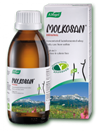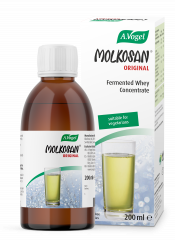A small introduction to bacteria
Did you know that there are bacteria living throughout your entire body? Then up to 1000 different species of bacteria are thought to inhabit your digestive tract alone!

Not to panic though, not all bacteria are bad! Often when we hear the word ‘bacteria’ we automatically think of the yucky germs found near a toilet or in a bin that you need to wash your hands or disinfect your work surfaces to protect yourself against. Actually, there aren’t the only types of bacteria out there and we should also consider ‘good’ bacteria!
What are the different types?
The bacteria living throughout your body can broadly be categorized into ‘good’ or ‘bad’ strains. An example of a bad type is Helicobacter pylori (H. Pylori). These bacteria can make their way into the lining of your stomach. If we are in good health with sufficient levels of stomach acid, the bacteria are kept in check and can live there relatively unnoticed; however, in other cases where stomach acid levels are inadequate, they can irritate your stomach and make you sick.
Children often come into contact with H. pylori at a young age. Generally, we try and avoid these harmful types of bacteria as much as possible, but the truth is, the introduction of the ‘bad’ bacteria into your system throughout the course of your life is necessary for supporting the development of your immune system.
Why do we need them?
Friendly, or good, bacteria are often referred to as probiotics. Probiotics offer a host of health benefits. Their influence starts in the gut and good levels are important for supporting normal digestive functions.
They help to keep the levels of bad bacteria under control and assist in the digestion of carbohydrates. They produce short-chain fatty acids as a result of this which can exert beneficial effects on our metabolism. The bad strains are thought to potentially contribute to undesirable symptoms such as bloating, flatulence, discomfort, constipation and diarrhoea.
We all have bad strains of bacteria living in our bodies, it isn’t possible, or desirable, to eradicate them completely. What is important is the balance in which they are found. We need our good bacteria, such as Lactobacillus acidophilus (L. Acidophilus) found primarily in the small intestine or Bifidobacterium bifidum (B. Bifidum) found in the large, to outnumber the bad strains so that their friendly effects can dominate.
We must remember that bacteria are tiny, living micro-organisms. Much like you or I, they reproduce and can die depending on the conditions and circumstances in which they are living. Therefore, we want to support the growth, and prevent the death of our good bacteria, and the opposite is true for the bad types: we need to keep their numbers in check! Many lifestyle factors will have an influence on both the gut environment and the bacteria themselves. Including dietary fibre or fermented foods in your diet can help maintain the pH of the gut and support your friendly bacteria, whereas antibiotics and processed foods can have negative effects.
Molkosan, for example, is rich in L+ lactic acid. But we’ll talk more about this later.
So, balance is key, right?
Now, the numbers of friendly bacteria and the proportions of them to the bad are thought to be important factors contributing not only to the function of the gut, but also your overall wellbeing. Your gut is a complex organ and it is thought to have important links to different areas of your body.
We are gradually learning more and beginning to understand how a healthy gut can have positive influences on many systems including your immune function, skin, weight management and even mental health, plus certain conditions, such as IBS. It's a super exciting concept – watch this space...
For part 2 in my good gut bacteria series: 'The whole-body effects of your good gut bacteria' simply click the link!








